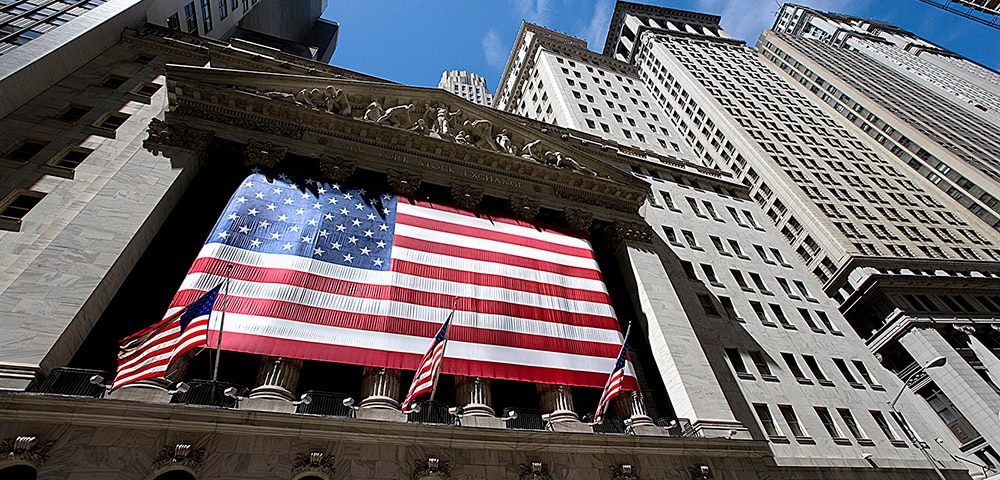Key Questions: Is the U.S. Going to War with Iran? What Should Investors Do?

The Key Wealth Institute is a team of highly experienced professionals representing various disciplines within wealth management who are dedicated to delivering timely insights and practical advice. From strategies designed to better manage your wealth, to guidance to help you better understand the world impacting your wealth, Key Wealth Institute provides proactive insights needed to navigate your financial journey.
Writing about the topic of war is not something that I like doing. While I have tremendous respect for those who valiantly serve or have served our country and their families who courageously support them, I have no firsthand experience with warfare. Moreover, when discussing war, it’s usually in the context of its impact on the economy, the capital markets, and investor sentiment, and given this, I fear that my comments may come across as callous, for they give the impression that the terrible human tragedy that sadly accompanies major conflict is diminished.
This, stated as plainly as possible, is not my intent. The cost of war is enormous. The human toll it takes is profoundly immeasurable, with wounds that never close, and harm (both physical and emotional) that can never be undone. But I am largely immune from this, and I am truly fortunate to be able to say this.
Despite the havoc and sheer devastation of war, the damage done to the economy and the financial markets is generally short-lived. As evidence, the last article I wrote concerning war and possible investment implications came in October 2023 when Hamas attacked Israel. Then, global equities (as measured by the MSCI All-Country World Index) fell over 8% amid a drawdown that would last 30 days. But within two weeks, stocks had fully recovered, and six months later, they appreciated over 20%.
Similarly, following the attacks on 9/11, stocks descended nearly 12% during a nine-day correction following these tragic events. But again, 14 days later, stocks retook their prior highs and six months later, they had rallied by over 19%. Thus, the economic and financial impacts have historically been brief. There are exceptions, however.
Following Russia’s invasion of Ukraine in February 2022, for example, stocks experienced an 11% correction that would span 19 days. But it would take nearly 500 trading days for stocks to return to pre-war levels, testing the patience of many investors in the process.
In this instance, the drawn-out recovery was largely due to forces mostly unrelated to war. More specifically, stocks struggled in 2022 as the Federal Reserve and other central banks were aggressively raising interest rates in response to surging inflation. Russia’s invasion of Ukraine exacerbated these inflationary pressures, but they did not trigger them, nor were they singularly responsible for them.
Today, investors are again faced with renewed tensions in the Middle East, punctuated by attacks between Israel and Iran that began on June 13. On June 22, a massive and surprise airstrike was initiated by the United States targeted at three of Iran’s main nuclear facilities in Fordow, Natanz, and Isfahan, prompting several to ask: “Is the U.S. going to war with Iran?”
To this question, senior administration officials and members of the U.S. military have repeatedly suggested that our involvement with Iran has been, and will remain, limited and targeted at the country’s nuclear capabilities as opposed to something larger such as regime change. As such, markets have remained calm, with equity prices trading higher, oil prices trading lower, and interest rates slightly below pre-strike levels. In fact closely tracked U.S. stock indexes, after slumping nearly 20% earlier this year, are now within short distance of new all-time highs, pushing valuations to lofty levels and compressing volatility in several other areas throughout the capital markets.
Still, in our opinion, the situation in the Middle East remains highly dynamic with a range of possible outcomes that is exceptionally wide. One key risk involves the supply of oil, which could be disrupted if Iran blocks or restricts the Strait of Hormuz, the most important oil transit chokepoint in the world. An estimated 20%–25% of the world's oil shipments pass through these waters, and, if this amount of supply was significantly reduced or removed, even just temporarily, it would surely trigger economic hardship for much of the world.
Given this uncertainty and the unpredictable nature of policy going forward, we believe that investors should refrain from making major changes to their portfolios and instead rely on the resiliency that a diversified portfolio provides. Tactical shifts, in our view, should be made sparingly and only when the odds of being compensated for such moves are in an investors’ favor, usually when sentiment is low and the opportunity set for prospective returns is high.
More importantly, I’ll close with a quote I used in my last article about war, borrowing a sentiment expressed by a well-known investor to his clients during a time of deep angst and anxiety: “Put your portfolio concerns aside and focus instead on your loved ones. Give them as many hugs and kisses and kind words as you can. It’s a much better use of your time.”
Well said.
For more information, please contact your advisor.